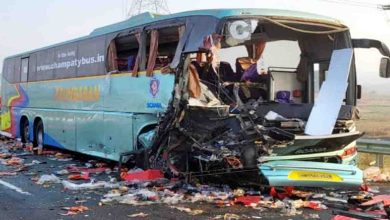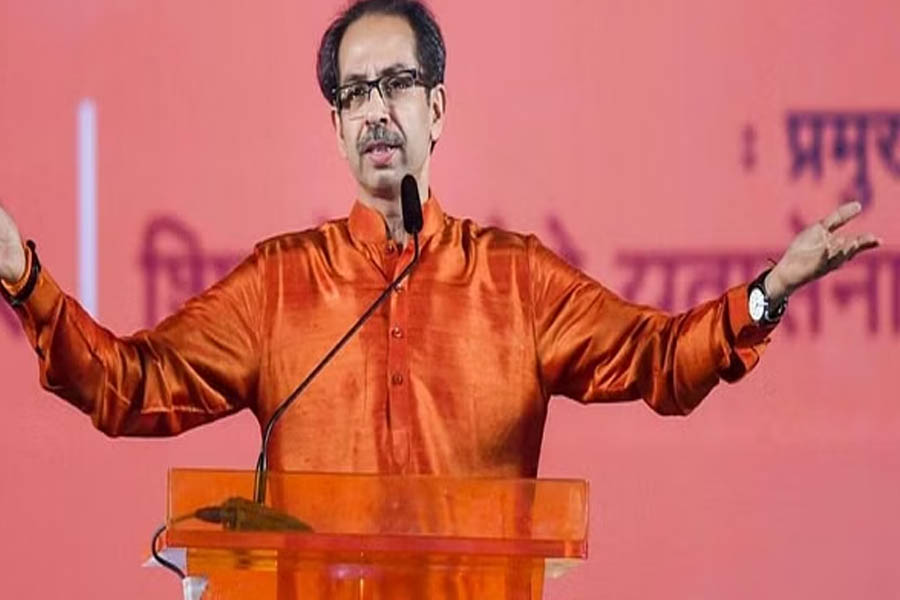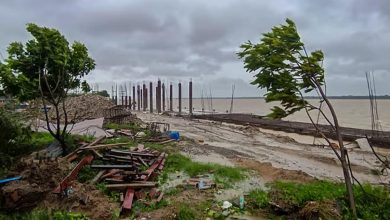Mukhtar Ansari’s son demands transfer of himself from UP jail

New Delhi: Mukhtar Ansari’s son Omar Ansari, fearing imminent and serious danger to his father, has moved the Supreme Court seeking transfer of his father from Banda jail to any jail outside Uttar Pradesh. The petitioner has mentioned various incidents that took place in Uttar Pradesh including the Atiq Ahmed murder case.
The petitioner noted that on April 15 this year, Atiq Ahmed and his brother Khalid Azim alias Ashraf were shot dead by police officials while being taken for routine medical checkup and the murder was captured on live television.
Mukhtar Ansari’s son father Omar Ansari urged the top court to issue appropriate directions to transfer his father Mukhtar Ansari from Banda jail in Uttar Pradesh to any jail in the state ruled by any party other than BJP outside the state of Uttar Pradesh. be passed.
He has also sought to pass an appropriate direction that his father be produced before the courts only through virtual conferencing.
In the petition, Omar said that he fears imminent and serious threat to the life of his father Mukhtar Ansari, who is currently lodged in Banda jail (Uttar Pradesh). “The petitioner’s father is a well-known political figure in the state of Uttar Pradesh and has been a member of the Legislative Assembly for five consecutive terms from Mau constituency of Uttar Pradesh.
“Since the petitioner’s father belongs to a political party which is politically and ideologically opposed to the government in power in the State, the petitioner, the petitioner’s father, brother and their family have been the target of harassment by the State,” the petition said. Is .
“The State has consistently been adopting a personally hostile stance against the petitioner’s family, particularly her father, but now the petitioner’s father has received credible information that his life is in grave danger and with the involvement of multiple actors within the State establishment. There is a conspiracy going on.” Kill him in Banda jail,” the petition said.
“The father of the petitioner has given this information to his son i.e. the petitioner and thus the petitioner, being extremely scared and worried for the life of his father, has come to approach this Court with the sole objective of protecting the life of his father. Is obliged.
The petitioner fears serious and imminent danger to the life and limb of his father in Banda jail. According to the information received by the petitioner through his father, the method of his murder would be one which is not new, but as has been done in many other cases to carry out murders in prison.
According to information received from reliable sources in the police establishment, the persons who have been appointed to murder the petitioner’s father will be arrested by the police or will be called on remand for some minor offence, produced before the court and Then he will be sent to judicial custody. Then, they will be taken to Banda jail where the petitioner’s father is currently lodged. This will give the said persons the desired proximity to the petitioner’s father,” the plea said.
“Subsequently, these hired killers will be provided access to weapons inside the prison and provided an opportunity through a lapse in the security systems which they can exploit in collusion with the prison authorities. The standard method of operation is to give the attack a kind of fighting between the prisoners to give the entire incident the misleading appearance of ‘gang war’.
As mentioned above, this unique method of murder within the prison has already been used to cover up the murder of Meraj Ahmed, who is the father of the petitioner in a case under the Maharashtra Control of Organized Crime Act. Was a co-accused. And later both were acquitted.
“He said that Meraj Ahmed along with his associate Muqeem Kala was shot dead inside a high security barrack of Chitrakoot district jail in UP in May, 2021,” the plea said.
The petitioner said there is a disturbing trend of extrajudicial killings in the state, which has been witnessed in various cases including the Atiq Ahmed murder case and the December 2019 undertrial Shahnawaz murder case.














